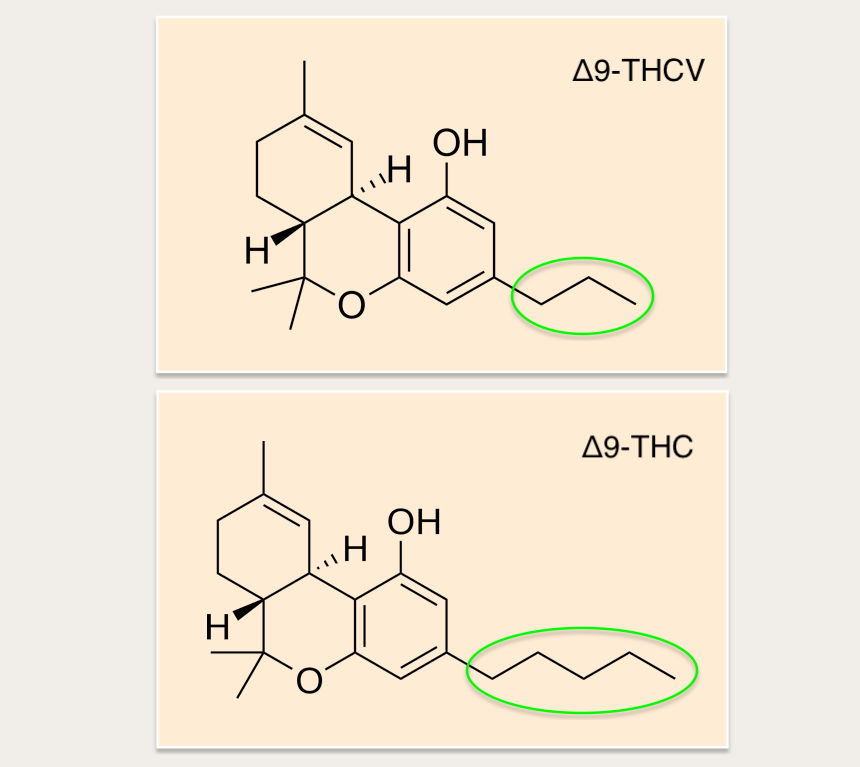Tetrahydrocannabivarin (THCV) is a cannabinoid compound discovered in marijuana and hemp plants. It's chemically comparable to tetrahydrocannabinol (THC) but with some key differences. Here's everything you need to understand about THCV consisting of the threats, benefits, differences, and similarities with other forms of THC and more. What Is THCV? THCV is a less typical cannabinoid discovered in some pressures of cannabis, especially African sativa.
 THCV vs THC: What Are the Differences? Articles Analytical Cannabis
THCV vs THC: What Are the Differences? Articles Analytical Cannabis
 THCV vs THC: What Are the Differences? Articles Analytical Cannabis
THCV vs THC: What Are the Differences? Articles Analytical Cannabis
 What is THCV and what are the benefits of this cannabinoid? Leafly
What is THCV and what are the benefits of this cannabinoid? Leafly
THCV has a 3-carbon side chain rather than THC's 5-carbon side chain. This distinction is subtle, but it has a noticeable effect on the result profile. THCV is somewhat psychedelic but only about and about. What Does THCV Feel Like? THCV has a strong energy-boosting element to it, which makes it especially popular amongst trainees and athletes.
In the United States, THCV regulation is nuanced. THCV is not an Arrange I Drug, however cannabis extracts are making it somewhat ambiguous what the federal position is on THCV. The 2018 Farm Bill mentions that hemp plants and all derivatives of the plants are legal on a federal level, numerous companies comply with this law and still supply THCV to consumers by only drawing out the substance from hemp plants.
If THCV is thought about a THC analog, it might be managed in the future by the same rules as THC under the Federal Analog Act. This act mentions that any substance that shares a similar molecular profile as a known prohibited compound it's consisted of in the same drug Schedule classification.
What Are the Impacts of THCV? Advocates of THCV report that it produces an extreme burst of energy and makes them feel blissful without the psychological cloudiness brought on by THC. The results are extremely mild compared to THC. The results are nearly specifically cognitive yet in some way have extremely little effect on headspace.
2. THCV & Cravings Some THCV users claim that it curbs their hunger. This is a typical impact of other focus-enhancing compounds. It's as though THCV gets rid of the interruption of other bodily procedures (like cravings) in order to preserve resources and attention to cognitive tasks instead. How Does THCV Work? Cannabinoids produce biological results in the body by interacting with endocannabinoid receptors.
CB1 receptors lie in the nerve system and connect with neurotransmitters in the brain to produce mind-altering impacts. Interaction with CB1 websites is what provides some cannabinoids like THC their psychoactivity. THCV is a bit challenging to comprehend due to the fact that it's primarily a CB1 villain, indicating it has the opposite impact as THC.
While scientists are still looking for to comprehend this procedure, it appears THCV is able to block the results of CB1 in low doses and promote them in high doses. CB2 receptors are found mostly in the immune system. THCV is a partial agonist of CB2, however the impacts of this partial activity aren't well-known, and it apparently has no noticeable effect on THCV users' experience.
As pointed out in the previous section, THCV is a CB1 villain in low dosages which is the specific opposite result of delta 8 and delta 9 THC. This might mean that THCV combats a few of the psychoactive effects of THC. This effect might describe why individuals who use THCV feel so clear-headed specifically compared to the infamous "fogginess" caused by delta 9 THC.